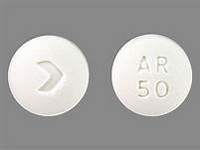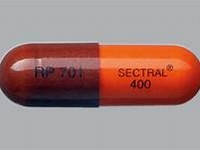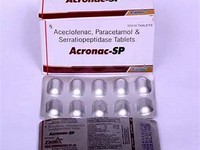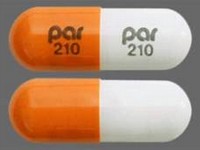Acetazolamide

Acetazolamide
CLINICAL USE
Carbonic anhydrase inhibitor:
Glaucoma Diuretic Epilepsy DOSE IN NORMAL RENAL FUNCTION
Glaucoma/Epilepsy: 0.25–1 g daily in divided dosesDiuretic: 250–375 mg daily PHARMACOKINETICS
Molecular weight :222.2 %Protein binding :70–90 %Excreted unchanged in urine : 100 Volume of distribution (L/kg) :0.2half-life – normal/ESRD (hrs) :3–6/26 DOSE IN RENAL IMPAIRMENT
GFR (mL/MIN)
20 to 50 : 250 mg up to 4 times a day 10 to 20 : 250 mg up to twice a day <10 : 250 mg daily DOSE IN PATIENTS UNDERGOING RENAL REPLACEMENT THERAPIES
CAPD :Not dialysed. Dose as in GFR <10 mL/min HD :Unlikely dialysability. Dose as in GFR <10 mL/min. HDF/high flux :Unknown dialysability. Dose as in GFR <10 mL/min CAV/VVHD :Unknown dialysability. Dose as in GFR 10 to 20 mL/min IMPORTANT DRUG INTERACTIONS
Potentially hazardous interactions with other drugsAnalgesics: high dose aspirin reduces excretion (risk of toxicity)Anti-arrhythmics: increased toxicity if hypokalaemia occursAntibacterials: effects of methenamine antagonisedAnti-epileptics: increased risk of osteomalacia with phenytoin, primidone and phenobarbital; concentration of carbamazepine increased and primidone reducedAntihypertensives: enhanced hypotensive effectAntipsychotics: increased risk of ventricular arrhythmias due to hypokalaemiaAtomoxetine: increased risk of ventricular arrhythmias due to hypokalaemiaBeta-blockers: increased risk of ventricular arrhythmias due to hypokalaemia with sotalolCardiac glycosides: increased toxicity if hypokalaemia occursLithium: lithium excretion increased ADMINISTRATION
Reconstition
Add at least 5 mL of water for injection Route
Oral, IM, IV Rate of Administration
Give slow IV Comments
Avoid IM due to alkaline pH Monitor for signs of extravasation and skin necrosis during administration OTHER INFORMATION
Use cautioned in severe renal failure Acetazolamide sodium (Diamox) parenteral contains 2.36 millimoles of sodium per vialSevere metabolic acidosis may occur in the elderly and in patients with reduced renal function
See how to identify renal failure stages according to GFR calculation
See how to diagnose irreversible renal disease
Home









